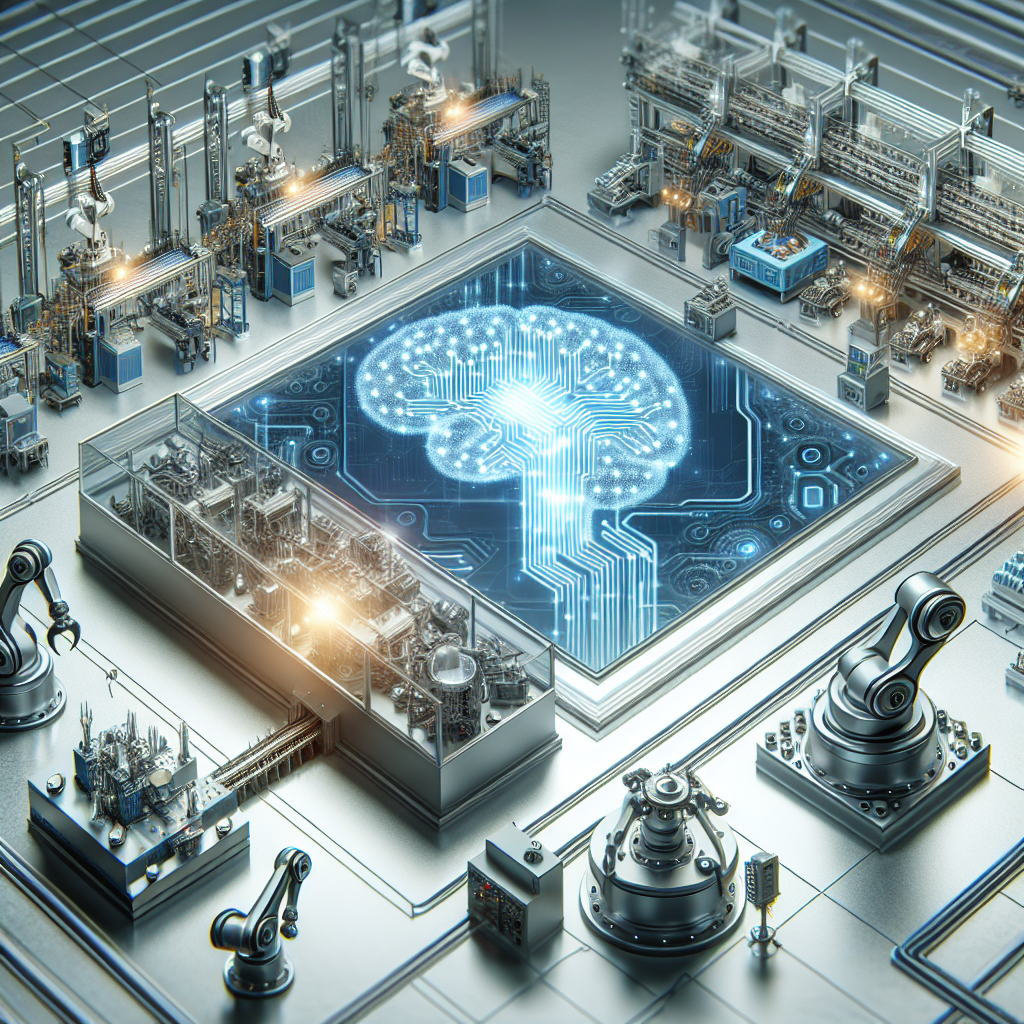Artificial intelligence (AI) and advanced manufacturing technologies have revolutionized the manufacturing industry, leading to increased efficiency, productivity, and innovation. These technologies have enabled manufacturers to automate processes, optimize production, and create new products that were previously impossible to produce. In this article, we will explore the impact of AI and advanced manufacturing technologies on the industry, as well as address some frequently asked questions about these technologies.
AI in Manufacturing
AI has become an essential tool for manufacturers looking to improve their operations and stay competitive in today’s fast-paced market. By using machine learning algorithms, AI can analyze large amounts of data to identify patterns and make predictions, helping manufacturers optimize their production processes and reduce costs.
One of the key benefits of AI in manufacturing is predictive maintenance. By analyzing data from sensors and other sources, AI can predict when a machine is likely to fail, allowing manufacturers to schedule maintenance before a breakdown occurs. This not only reduces downtime but also extends the lifespan of equipment, saving companies money in the long run.
AI can also be used to optimize production schedules, ensuring that resources are allocated efficiently and that production targets are met. By analyzing data on factors such as demand, inventory levels, and machine performance, AI can help manufacturers make informed decisions about how to best utilize their resources.
Another area where AI is making a big impact is quality control. By analyzing images and other data, AI can detect defects in products with a high degree of accuracy, helping manufacturers ensure that only high-quality products are shipped to customers.
Advanced Manufacturing Technologies
In addition to AI, advanced manufacturing technologies such as 3D printing, robotics, and the Internet of Things (IoT) are also transforming the industry. These technologies are enabling manufacturers to produce complex products more quickly and efficiently than ever before.
3D printing, also known as additive manufacturing, allows manufacturers to create products layer by layer using digital models. This technology is particularly useful for producing prototypes and custom parts, as it enables manufacturers to quickly iterate on designs and produce unique products that would be difficult or impossible to make using traditional manufacturing methods.
Robotics is another key technology that is revolutionizing the manufacturing industry. By using robots to automate tasks such as welding, assembly, and packaging, manufacturers can increase productivity, reduce labor costs, and improve safety in the workplace. Collaborative robots, or cobots, are also becoming increasingly popular, as they can work alongside human workers to perform tasks that require both precision and flexibility.
The IoT is connecting machines, sensors, and other devices to the internet, allowing manufacturers to collect and analyze data in real-time. This data can be used to monitor machine performance, optimize production processes, and improve overall efficiency. For example, manufacturers can use IoT devices to track the location of inventory, monitor energy usage, and even predict when machines are likely to fail.
FAQs
Q: How can AI help manufacturers improve their supply chain management?
A: AI can be used to analyze data on factors such as demand, inventory levels, and supplier performance to optimize supply chain operations. By using AI-powered algorithms to forecast demand and identify potential bottlenecks, manufacturers can make informed decisions about how to best allocate resources and minimize risks in their supply chain.
Q: What are some of the challenges of implementing AI and advanced manufacturing technologies in a manufacturing facility?
A: One of the main challenges of implementing AI and advanced manufacturing technologies is the initial investment required to purchase and install the necessary equipment and software. Additionally, manufacturers may face challenges related to data security, integration with existing systems, and training employees to use new technologies effectively.
Q: How can manufacturers ensure that their employees are prepared to work with AI and advanced manufacturing technologies?
A: Manufacturers can provide training programs and workshops to help employees develop the skills needed to work with AI and advanced manufacturing technologies. By investing in employee training and development, manufacturers can ensure that their workforce is equipped to leverage these technologies effectively and contribute to the company’s success.
In conclusion, AI and advanced manufacturing technologies are transforming the manufacturing industry, enabling manufacturers to optimize production processes, reduce costs, and create innovative products. By leveraging these technologies, manufacturers can stay competitive in today’s rapidly evolving market and drive growth in their businesses.

